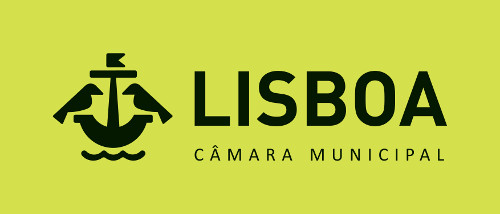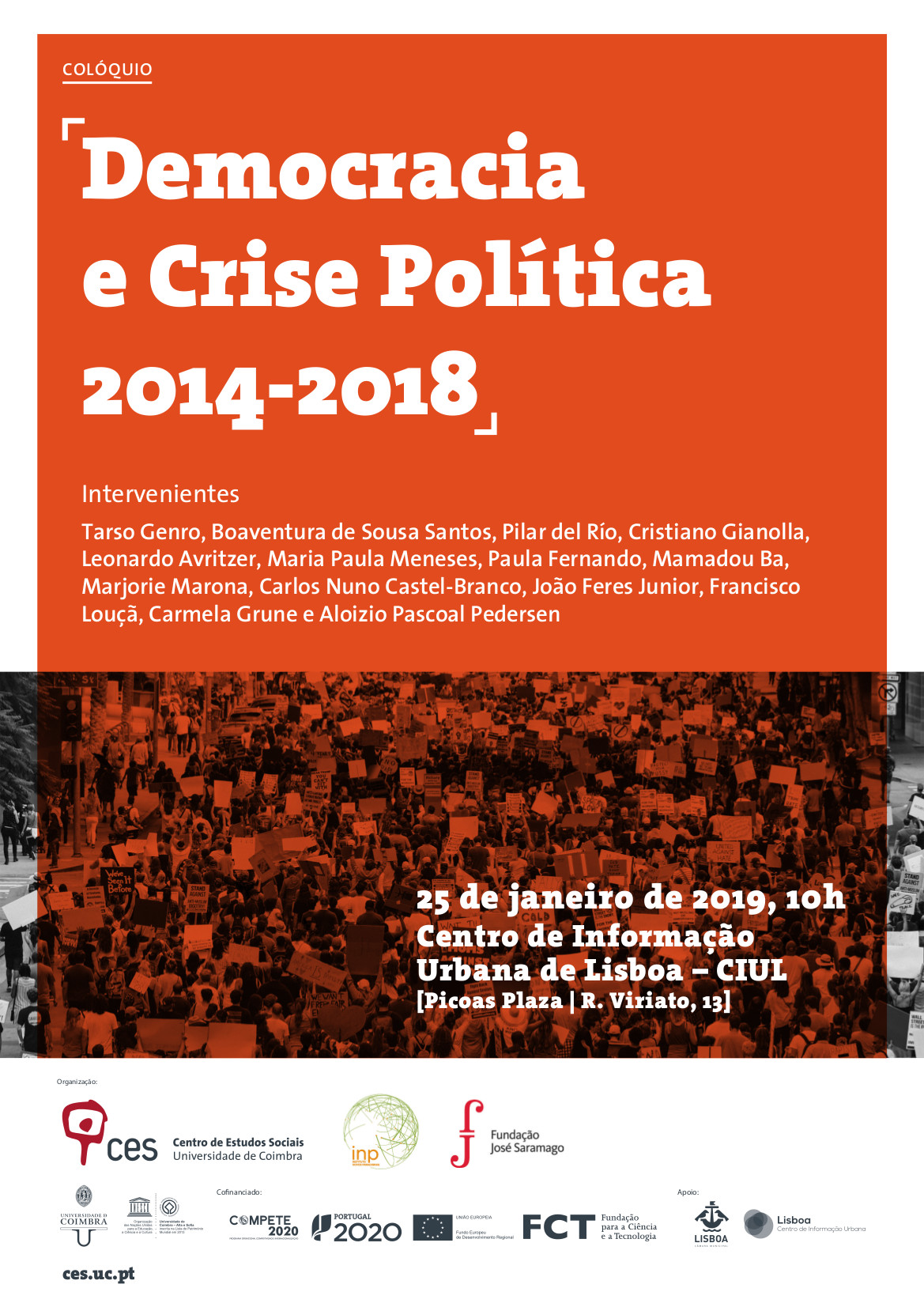Colloquium
Democracy and Political Crisis in Brazil and the World - 2014-2018
January 25, 2019, 10h00
Centro de Informação Urbana de Lisboa - CIUL
About
The crisis of democracy has settled in the world, both in the North and in the global South. In the case of Latin America, the so-called 'pink wave' and the democratic advances of the past decade have been completely reversed. In the European context, the populist wave is calling into question several democratic advances. In the African context, the democratic crisis is more noticeable when analysing the so-called debt crises.
The purpose of this seminar is to analyse the interrelation between the crisis of democracy in different contexts, with a focus on the Brazilian case. Brazil has been experiencing a major political crisis since June 2013. In the course of the expansion of the protests, a diverse set of contending issues emerged, among them from conservative sectors. This right maintains its historical characteristics in Brazil but also incorporates new elements.
The crisis widened during the presidential elections of 2014, atypical for several reasons. They occurred in a strongly polarized environment. The president was harassed during the World Cup matches and the campaign debates were extremely aggressive. President Dilma Rousseff, meanwhile re-elected, was removed in 2016 by an impeachment without strong legal bases and replaced by another president of questionable legitimacy, which has become the most unpopular president in the country's history. Nonetheless, Michel Temer imposed reforms in public policies that are at the heart of the 1988 Constitution. Labour legislation has changed profoundly, and pension reform has been postponed, but it tends to return to the agenda after the October elections.
The judiciary is not excluded from the crisis. Since 2017, we have been following in Brazil conflicts involving the Supreme Federal Court pertaining to issues as important as habeas corpus and imprisonment following a second instance trial. The year 2018 began with new evidence of derailment in relation to the precepts of the rule of law. Attacks on human rights, specifically the right to come and go, were accentuated by federal intervention in Rio de Janeiro, and it was not by chance that a black, left-wing and homosexual councilor was victimized. Her murder sparked outrage in the country, but her executioners have yet to be identified by the police.
The electoral campaign of 2018 proceeds between reflecting and stimulating the polarization that remains in society. A candidate whose platform explicitly disdains democracy and human rights is at the forefront of the polls. Overall, only 1% of Brazilians are very satisfied with democracy. These are some of the elements of the ongoing democratic regression in the country - a process of diminishing support for democracy by broad layers of public opinion and the narrowing of practices associated with it. The trend is also found in other countries of the global South and North. Hence the relevance of debating it, both within and outside the country.
Organisers: Centrre for Social Studie sof the University of Coimbra, Instituto dos Novos Paradigmas and José Saramago Foundation
Support:




